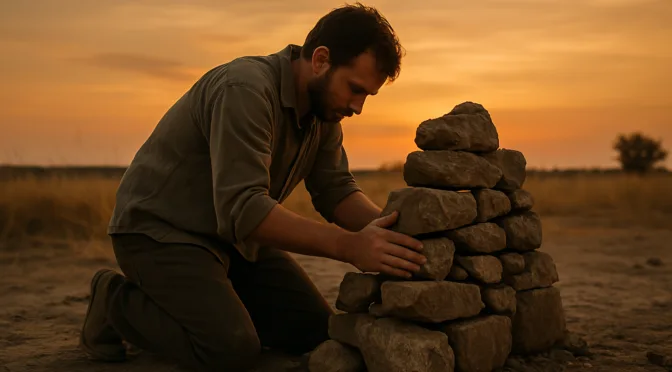Why the Chosen Are Not Always the Strongest
“Many are called, but few are chosen.” (Matthew 22:14, NASB)
Beloved, we live in a time when many hearts are growing cold. Some who once stood firm in the faith are now questioning everything they believed. They call it “deconstruction”—a process where people tear down their beliefs, but never rebuild on the truth. Instead of seeking God with open hearts, they walk away from His Word in search of something more comfortable, more convenient, more acceptable to the culture. Still, we must hold on in faith.
But the voice of God still whispers in the noise.
He calls—not the proud or the perfect, but those willing to remember, seek, and stay.
You are not chosen because you win.
You are chosen because you remember.
Because you seek.
Because you stay.
This is the calling of the remnant. This is the heart of the Bride of Christ.
“Not that we are adequate in ourselves… but our adequacy is from God.” (2 Corinthians 3:5, NASB)
What Does It Mean to Be Chosen?
To be chosen by God is not to be the most spiritual, the loudest, or the strongest. It is to be the one who says yes when God calls. It means to hold on in faith no matter what challenges come your way.
Scripture tells us, “There is none righteous, not even one” (Romans 3:10, NASB). We are not chosen because of our strength or worth. We are chosen by mercy.
“He chose us in Him before the foundation of the world.” (Ephesians 1:4, NASB)
And yet, many are invited—but few respond. Why? Not because God’s mercy is lacking, but because their hearts are unwilling.
“I wanted to gather your children together… and you were unwilling.” (Matthew 23:37, NASB)
God never forces love. He draws, He calls, He awakens—but He gives us the freedom to respond. That’s where free will lives: not in earning salvation, but in choosing to receive it.
Faith Is Holding On When Others Let Go
If you are still standing, still praying, still clinging to Yeshua in a world that mocks holiness—you are not forgotten. You are chosen.
- Hold on in faith when your prayers seem unanswered.
- Hold on when your heart is tired.
- Hold on when others let go, and you are tempted to follow.
- Hold on when all you can say is, “I believe; help my unbelief.” (Mark 9:24, NASB)
To be holy is to hold on.
To abide in the Vine (John 15:4–5).
To press on toward the upward call (Philippians 3:12).
To stay when leaving would be easier.
A Prayer for the Faithful Remnant
Father, we thank You for calling us by Your mercy. Not because we were wise, or strong, or worthy—but because You are good. Give us the strength to remember what You have done. Help us to seek Your face in a world that seeks distraction. Teach us to stay when others walk away. Let us hold on in faith and not waver.
Let us hold fast the confession of our hope without wavering, for You who promised are faithful (Hebrews 10:23, NASB).
In Yeshua’s name we pray—Amen.
⸻





